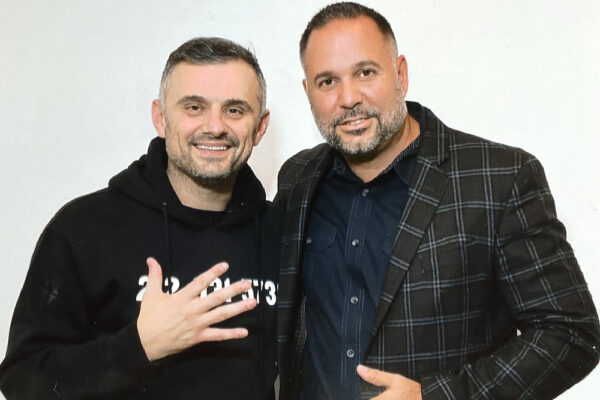
Hi Gil, and welcome aboard. Today we are going to talk about Discosloth. Discosloth revamps the way businesses use PPC and SEO. So what exactly does Discosloth do, and what is special about it?
Gil: Discosloth specializes in search marketing – specifically helping people get higher visibility on search engines like Google and Bing. When we started, we saw that the PPC (pay-per-click) industry wasn’t very transparent about the way it works. We’re trying to improve that transparency by releasing detailed information about our strategies and establishing a subscription-based model so that companies know upfront how much they’ll need to pay.
I have many questions about what a small business could or should do to promote its products online. But what I noticed most importantly in the last 5 years and we should probably start with is the following statement: 10 years ago it was enough to have a product and make a site for it. Now you have the product you make the site, and nobody visits your site. Is this true?
Gil: That’s totally true. And this is because of the way search or social companies have intentionally siloed their platforms. It’s pay-to-play now: their business model involves making money from directing traffic, so it’s not going to be easy to get free, organic, viral users.
What has changed in the last years? I still have customers that ask me to do a little SEO on their site to be “on the first page of Google,” and while I know that’s no longer the case, what would be a correct answer?
Gil: Google’s algorithms have gotten exponentially smarter over the past few years, and that’s actually a good thing for consumers. The search algorithms are now semantic. They’re intent-based rather than keyword-based, so it’s tough to game. You used to be able to rank on the top position just by cramming your page with keywords. Now, that would bury you in the rankings.
There is the misconception that SEO is a push-button approach, where you pay someone to flick a switch on their site, and they’ll magically start getting orders. Obviously, it doesn’t work this way, so I think the best way to educate your customers is to showcase studies and emphasize that the best growth comes from quality over quantity…not just generating a whole lot of shady backlinks.
I think everybody at some point went through a phase where the content was king. They published content each day, hoping for the best. It got more complicated as we have sites pushing up content like crazy, and a regular business can’t keep up. How does this work?
Gil: For a while, yes, the content was king. But the problem is that people started producing content for content’s sake, rather than really good, quality content that answers their reader’s questions. And when you have literally millions of competitors producing weekly or daily content, you’re just not going to stand a chance. Someone always has a bigger content budget than you, or more writers on staff, or a bigger social audience to amplify that content. That’s why we encourage our customers to have a long-term strategy in place for their search marketing.
All these questions and I haven’t yet asked you who is your typical customer. Who comes to you, and what does a success story look like?
Gil: We focus on medium-sized businesses with an online presence that can be improved by search marketing. Our specific niches are usually in healthcare, travel, and eCommerce, but it’s really just anyone who we think can get increased ROI from improving their online presence. Success to me is helping a client get more money coming in than going out. Once you’ve got that, it’s effortless to scale.
How did you start Discosloth? I think there is a lot of competition in your area.
Gil: There is a lot of competition, which was actually one of the things that I was unsure about when we were starting. But we quickly found out that most people offering AdWords and Bing PPC aren’t specialists…they’re usually generalists, either digital agencies or solo creatives. And so we doubled down to focus on one specific thing and do it well: search marketing! It’s a specialization that has paid off with time.
One thing I noticed is that Google’s or Bing’s advertising interfaces got incredibly complex. Same for Analytics. How can you make something about understanding how things work?
Gil: You’re right; the interfaces have gotten a lot more complicated. But that’s because they’re continually adding new features and techniques. We realized this and found that most of our clients didn’t have a strong grasp of how PPC worked. So we spent a long time – a year, actually – creating a free guide for pay-per-click advertising to help them understand the ins and outs of digital ads. A shameless plug here (it’s really for Anya since she wrote the majority of the guide), but Rand Fishkin of Moz fame read it and said, “if you need a resource for those learning PPC, this is the one.” To us, that was some incredible praise from someone we really respect in the internet industry, and we hope it’s useful to people trying to discover more about PPC.
Let’s have an answer to a ubiquitous question. You have an online shop selling appliances. How can you get ahead of the other sites having the same products like yours?
Gil: That’s a loaded question! The first and most important thing is to make sure your site is perfect: not just a crappy template or a site hacked together by a nephew. But after that, the answer is just to be persistent and keep on keeping on. A long-term strategy will almost always pay off after others give up.
Do affiliates still work?
Gil: Does affiliate marketing still work as a general concept? Yes. Can the average person hack their way into tens of thousands of dollars of revenue with affiliates? Not anymore. That was a fad that worked insanely well for a few years, but space got crowded, and search engines started penalizing low-quality inbound marketing and doorway content. It doesn’t work anymore, but that hasn’t stopped hundreds of gurus selling guides to instant affiliate riches.
What would be an expected outcome using your services?
Gil: To see a good outcome using digital marketing, you’ve got to be in it for the long run and prepare for a lot of testing, incremental changes, and budgets. We’ve taken clients from a negative ROI all the way to a 150% ROI, but it takes months to do so. There’s no magic switch. But it’s definitely possible.
What are the biggest mistakes businesses make when advertising online?
Gil: Not having a defined brand and not knowing who their customers actually are. We’ve had many clients approach us with a preconceived notion of who buys their products and even what they themselves are offering. You can’t sell a $25 bag of single-origin coffee to a grandma, just like you can’t sell a dump truck to a hipster.
Does Facebook work?
Gil: Depends on your vertical. Definitely not for free, so you’ll need to pay to boost posts. If you’re selling impulse, low-margin purchases like t-shirts or gadgets, it works pretty well. But if you’re selling high-cost products that require research, it’s not going to be your best bet. That’s where a Google search campaign comes in.
What would be your most important advice for companies looking to increase their online revenues?
Gil: I really think that companies need to focus on their long-term approach. All too often, companies turn to online advertising to patch holes in their business model. If you’ve got a successful business, it can be made even more profitable by a digital strategy…sometimes by an exponential amount. But if your business isn’t doing well, and you’re trying to go digital as a last-ditch effort to save your income…that’s not going to work out too favorably for you. Digital marketing, whether it’s SEO or PPC, produces some incredibly profitable results for the right people. That’s what we like to help clients achieve!




